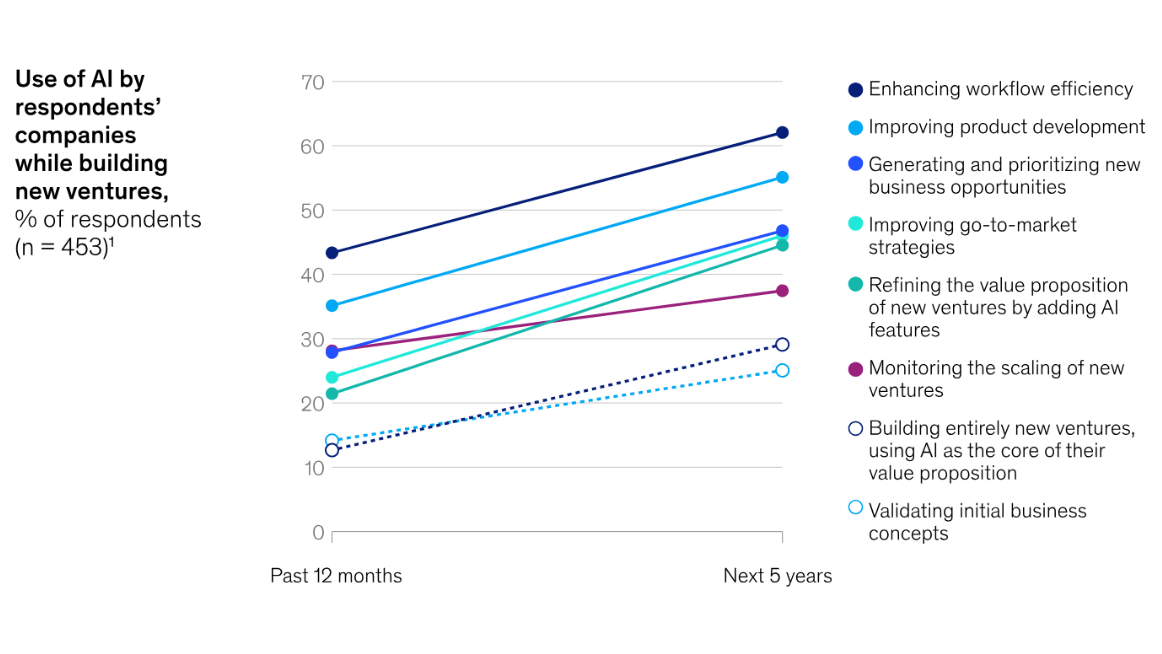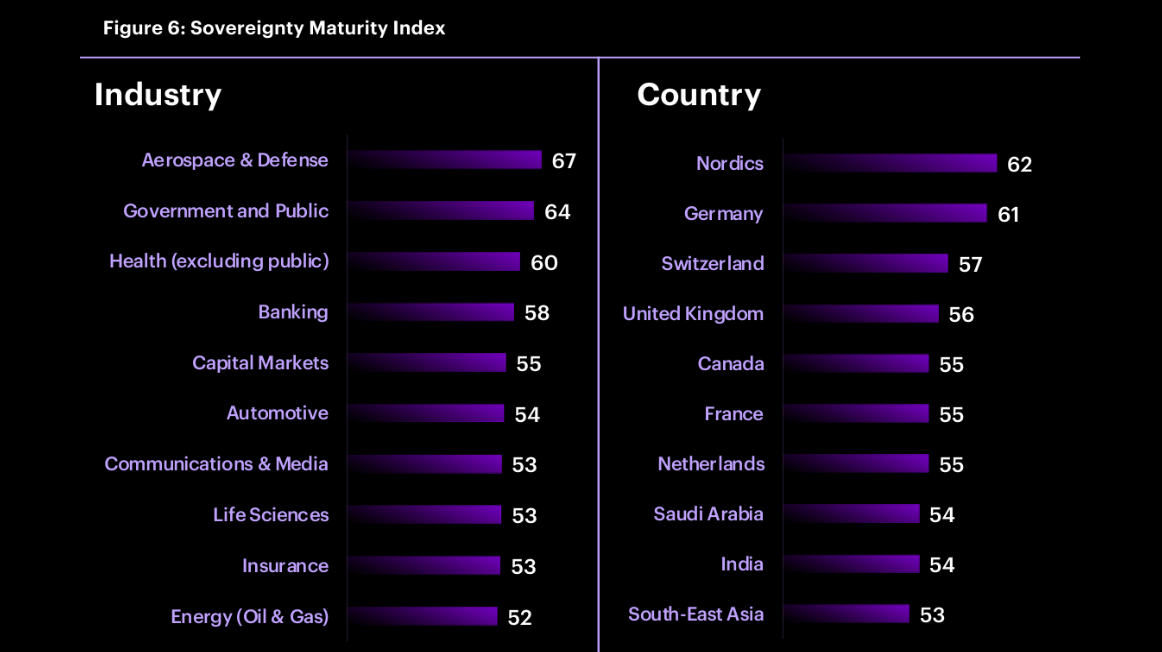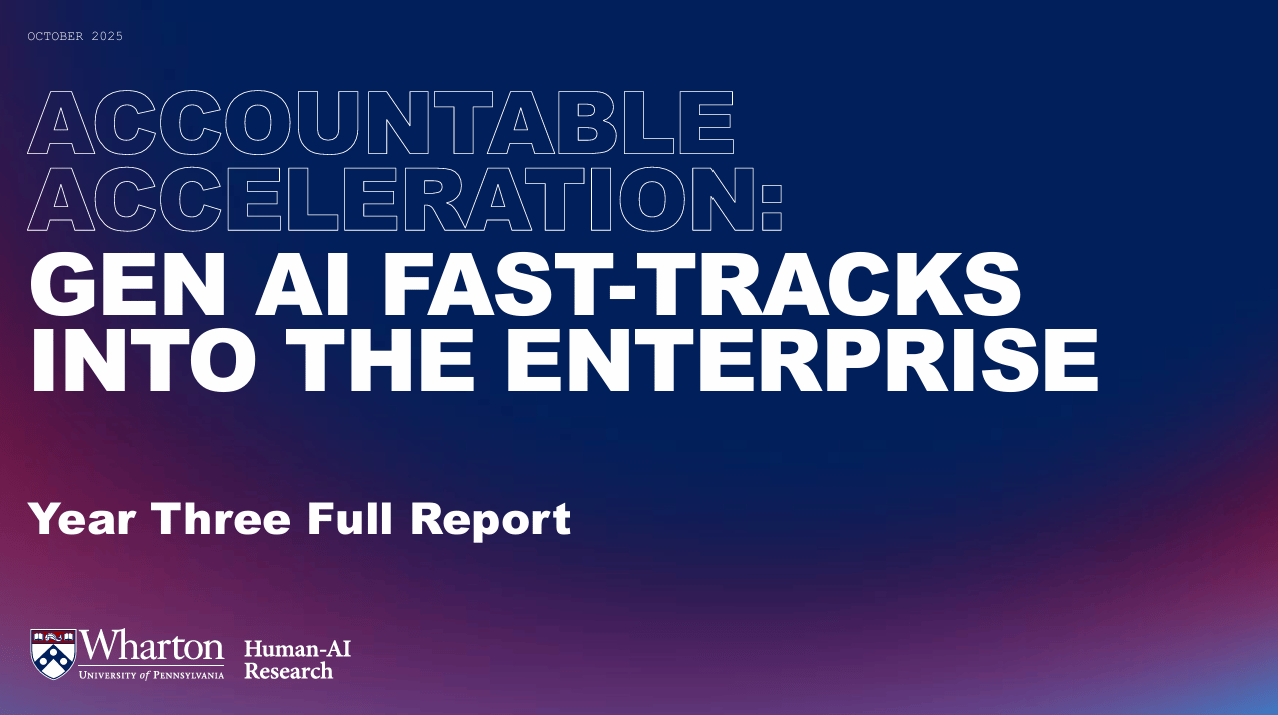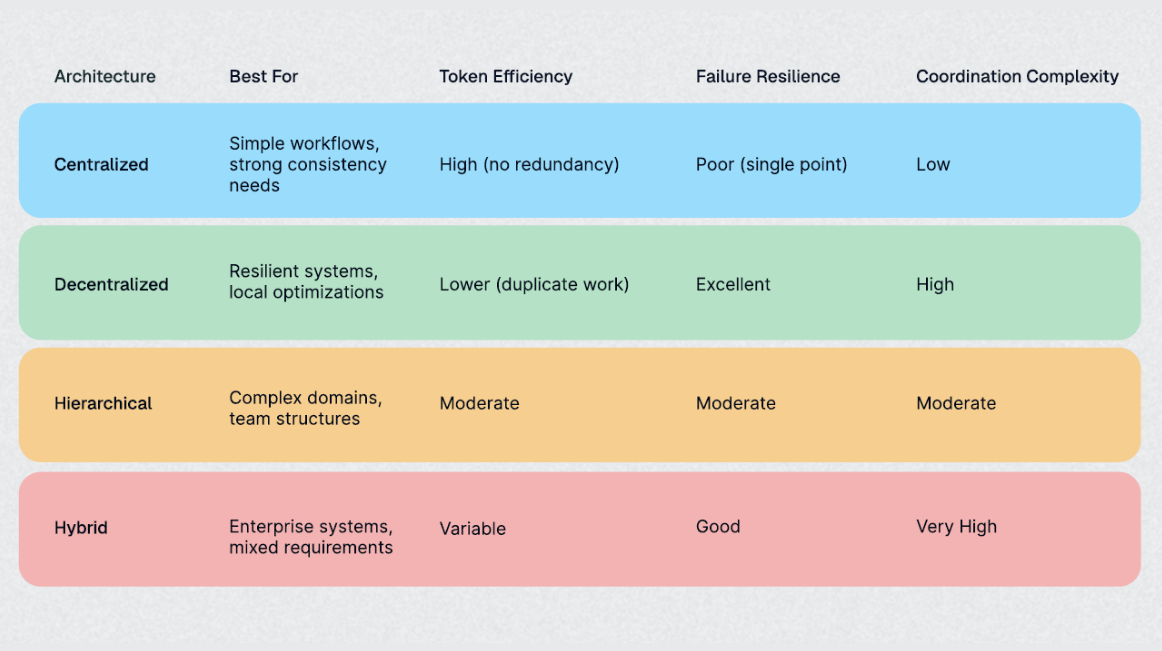- Enterprise AI Executive
- Posts
- McKinsey: 715 executives on building AI ventures
McKinsey: 715 executives on building AI ventures
Plus, multi-agent AI, Accenture sovereign AI, and more.
Welcome executives and professionals. Once executives experience the entrepreneurial spark, it’s hard to extinguish. Repeat venture builders see the greatest ROI, powered by experience and AI.
Since the previous edition, we have reviewed hundreds of the latest insights in agentic and generative AI, spanning best practices, case studies, market dynamics, and innovations.
This briefing outlines what is driving material value — and why it’s important.
In today’s briefing:
McKinsey unpacks AI in corporate venturing.
Accenture: The sovereign AI opportunity.
Wharton: Gen AI in the enterprise 2025.
Mastering multi-agent AI systems.
Transformation and technology in the news.
Career opportunities & events.
Read time: 4 minutes.

CORPORATE INNOVATION

Image source: McKinsey & Company
Brief: McKinsey’s survey of 715 executives found that companies launching entirely new products or services in the past five years are more likely to prioritize venture building, with the most successful leveraging AI.
Breakdown:
Most companies already apply AI in venture-building efforts and expect to expand its use in the next five years (see image above).
Over the past 12 months, leading AI use cases centered on operational efficiency, monitoring growth, generating ideas, and improving marketing.
Increasingly, AI agents support ideation and prototyping to scaling go-to-market plans, enabling multimillion-dollar ventures with small teams.
Just recently, Base44, an AI coding start-up, was sold to Wix, a web development platform, for $80 million, and it had just eight employees.
Despite tighter funding, 56% of companies plan to launch AI- or data-focused ventures in the next five years, up from 49% in 2024.
Why it’s important: Economic uncertainty may tempt leaders to focus on short-term profits, but research shows that investing in AI-powered corporate venture building delivers outsized long-term growth. One successful venture often sparks a cycle of innovation, generating momentum for future initiatives.
OPPORTUNITY INSIGHT

Image source: Accenture
Brief: Accenture’s 24-page report, drawing on a global survey of 1,928 organizations across 28 countries and 18 industries, explores how sovereign AI turns strategic vulnerability into a catalyst for innovation and growth.
Breakdown:
Sovereign AI is a nation’s ability to develop and deploy AI independently, relying on its own infrastructure, data, models, and talent.
It helps nations and enterprises participate in the benefits of building AI ecosystems, share data securely, and hedge supply chain risks.
Leading organizations elevate sovereignty to the CEO agenda, linking AI strategy to resilience, growth, and geopolitical realities.
Top performers ensure AI architecture flexibility and reframe sovereignty as a source of value creation, not just risk mitigation.
Accenture’s research finds firms can gain substantial impact by applying sovereignty principles to just one-third of their AI initiatives.
Why it’s important: AI has become foundational for national and business competitiveness, yet compute, data, and models remain concentrated in a few countries. This imbalance creates risk but also opportunity. Sovereign AI helps mitigate vulnerabilities while driving long-term growth.
MARKET INSIGHT

Image source: The Wharton School
Brief: Wharton’s 90-slide 2025 enterprise gen AI adoption report, based on insights from nearly 800 U.S. executives, tracks generative AI’s evolution, from early experimentation and pilots to disciplined, enterprise-level adoption.
Breakdown:
In 2025, 82% use gen AI weekly (+10pp YoY) and 46% daily (+17pp), though 43% express concern about declining human proficiency.
72% of enterprises formally measure gen AI ROI, tracking productivity and profit gains. Three in four report positive financial returns.
Chief AI Officers are present in 61% of enterprises: 26% newly created, while 34% expand existing leadership roles with broader mandates.
Four in five expect gen AI investments to pay off in 2-3 years. 62% anticipate budget increases of at least 10% in the next 12 months.
One-third of AI budgets fund in-house R&D as firms pursue increasingly custom builds. Training, hiring, and rollout remain critical to success.
Why it’s important: Weekly gen AI use has more than doubled since 2023 as enterprises move from pilots to proven impact. Budgets and ROI expectations signal growing confidence in AI’s business value. Holding gen AI to the same standards as other major investments is a sign of increasing maturity.
BEST PRACTICE INSIGHT

Image source: Galileo
Brief: Galileo, a leading AI startup, released a 165-page guide, Mastering Multi-Agent Systems, explaining when multi-agent systems add value, how to design them efficiently, and how to build reliable, production implementations.
Breakdown:
Outlines the key benefits of multi-agent systems, from specialization to fault tolerance, and when these justify added complexity.
Introduces a decision framework to determine if multiple agents are truly needed, including five critical questions to guide that choice.
Explores four primary architectures (centralized, decentralized, hierarchical, and hybrid) with guidance on selecting the optimal approach.
Details context engineering strategies, covering memory vs. context trade-offs, common failure modes, and techniques to prevent them.
Provides a full LangGraph implementation walkthrough, showing how to build, test and optimize a real production system.
Why it’s important: This guide helps teams balance multi-agent specialization and coordination costs, choose architectures that fit constraints, manage context, and more. Deliberate implementation is emphasized as the bridge between theory and successful production deployments.

BCG shared 22 slides on unlocking gen AI’s value in automotive, insights on transforming KYC with agentic AI, and fueling innovation through better data.
The Economist explored how LVMH uses AI to enhance client experience and craftsmanship, and how IKEA applies its flat-pack mindset to AI.
McKinsey featured JPMorgan’s Derek Waldron on building an AI-first culture; plus AI procurement, and the infrastructure that cools AI data centers.
HFS Research says "AI will never save bad leadership," named process debt the real AI bottleneck, and detailed its Lyzr-built multi-agent architecture.
Forrester explored “Salesforce Dreams of the Agentic Enterprise,” covering rebranding, enterprise agents, and doubling down on the data layer.
KPMG released a 46-page Customer Excellence report on how leaders deliver personal, intuitive, anticipatory, and trusted experiences with agentic AI.
The European Parliament released a 108-page study on how the AI Act aligns with the GDPR/Cyber Resilience Acts, plus 18 pages on its AI factories.
OpenAI detailed how Doppel built a GPT-5-powered defense system to counter deepfakes and impersonations, cutting analyst workloads by 80%.

OpenAI is planning a 2026 IPO that could value it near $1T and launched Aardvark, a GPT-5 agent that autonomously patches code vulnerabilities.
Nvidia CEO Jensen Huang projected $500B in revenue from Blackwell and Rubin chips through 2026, while also announcing new models and investments.
Google upgraded NotebookLM, launched Pomelli for AI-designed marketing campaigns, and updated Google Earth AI to help tackle environmental issues.
Anthropic released Claude for Excel in beta, adding sidebar interactions for reading, analyzing, and editing data plus new finance connectors and skills.
Cursor launched Composer, its first proprietary coding model, alongside an overhauled 2.0 platform designed to run multiple AI agents simultaneously.
OpenAI finalized its transition to a public benefit corporation and renegotiated its Microsoft partnership to address AGI rights and ownership stakes.
GitHub introduced Agent HQ, a platform that integrates coding agents from Anthropic, OAI, Google, Cognition, and xAI into existing workflows.
Mistral AI launched Studio, a platform helping companies scale from prototypes to production with built-in tools for testing, tracking, and security.

CAREER OPPORTUNITIES
Anthropic - Executive Creative Director
Atos - Head of Artificial Intelligence
OpenAI - Head of U.S. State Policy
EVENTS
ServiceNow - KPMG’s AI transformation - November 12, 2025
Everest Group - Agentic AI Enterprise - November 19, 2025
Snowflake - Production AI Agents - December 9, 2025

Originally conceived as a practical communication for executives the editor, Lewis Walker, has worked with, this briefing now serves as a trusted resource for thousands of senior decision-makers shaping the future of enterprise AI.
If your AI product or service adds value to this audience, contact us for information on a limited number of sponsorship opportunities.
We also welcome feedback as we continue to refine the briefing.

